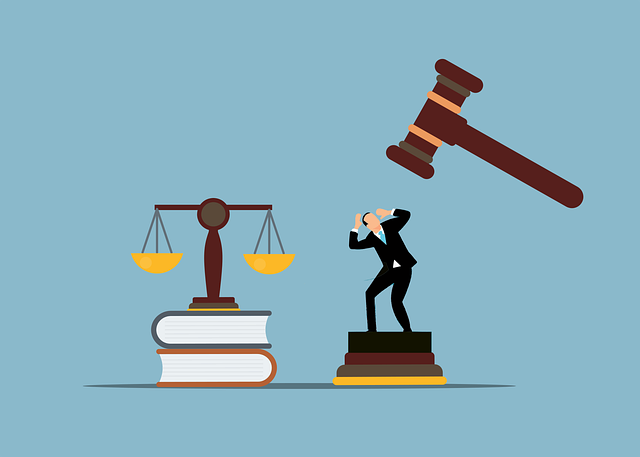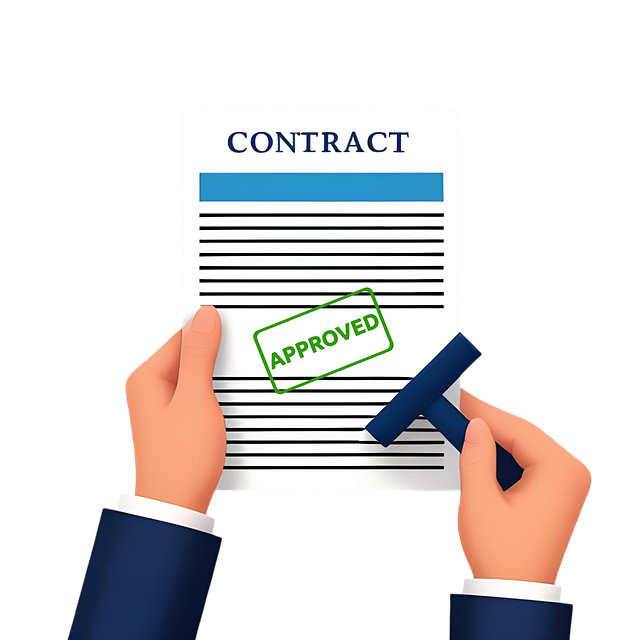Legalised Translation Services UK are integral to the legal process within the country, providing precise and legally compliant translations for a multilingual population. These services ensure that all translated legal documents are both accurate and authentic, adhering to strict standards set by the Foreign and Commonwealth Office (FCO). They employ expert native speaker translators with specialized knowledge in relevant fields, utilizing translation memory software for consistency and quality control. This meticulous approach ensures that documents are legally recognized and acceptable across UK courts and governmental bodies, essential for both domestic and international legal cases. The UK's robust framework for language service providers has established these services as a critical link for individuals and businesses navigating the complexities of legal transactions across linguistic barriers. Legalised Translation Services UK thus offer clients the assurance of integrity and precision required for their legal documents to be enforceable under UK law.
navigating the legal landscape of the United Kingdom requires meticulous attention to detail, particularly when it comes to translating documents for international submission. The necessity for precise, legalised translation services is paramount to ensure that legal papers are recognized and honored by authorities worldwide. This article delves into the intricacies of the UK’s legal framework concerning translations for legal submissions, elucidating the distinctions between certified and legalised documents. We provide a comprehensive overview of reliable service providers offering fast and affordable legalised translation services in the UK, guiding you through the legalisation process with clarity. Additionally, we explore cost-effective solutions for your translation needs, maintaining accuracy and compliance through stringent verification and quality assurance protocols. Understanding these aspects is crucial for anyone dealing with cross-border legal matters, ensuring that their translated documents meet all necessary standards for international use.
- Understanding the Necessity of Legalised Translation Services in the UK
- The Legal Framework Governing Translations for Legal Submissions
- Key Differences Between Certified and Legalised Translations
- Comprehensive Overview of Fast and Affordable Legalised Translation Services Providers
- Step-by-Step Guide to the Legalisation Process in the UK
- The Role of Notaries in the Legalisation of Documents for International Use
- Cost-Effective Solutions: Budgeting for Your Legalised Translation Needs
- Ensuring Accuracy and Compliance: Verification and Quality Assurance in Legalised Translations
Understanding the Necessity of Legalised Translation Services in the UK

In the UK, where legal proceedings often require meticulous and precise documentation, the necessity of professional legalised translation services cannot be overstated. The UK’s diverse population, with individuals from various linguistic backgrounds, regularly interacts with legal systems that demand compliance with stringent procedural requirements. Legal documents must be accurately translated and bear the necessary certifications to be admissible in court. This is where legalised translation services come into play, providing translators who are not only proficient in the source and target languages but also well-versed in legal terminology and UK law. These services ensure that all translations undergo a rigorous process that includes verification of the translated content against the original documents to maintain the integrity and authenticity of the information. This certification process, overseen by authorised signatories, transforms regular translations into legalised translations, which are legally binding and acceptable in UK courts and government bodies.
The importance of utilising legalised translation services in the UK is further underscored by the complexities of international trade and immigration, where legal documents must often be presented in the correct language with proper authorisation. Whether it’s contractual agreements, affidavits, or court orders, these translations must adhere to specific legal standards. The UK’s translation services are tailored to meet these demands, offering fast turnaround times and competitive pricing without compromising on quality. By leveraging the expertise of accredited legal translators and a thorough certification process, individuals and businesses can navigate legal requirements with confidence, ensuring that their translated documents will be recognised and respected by legal authorities across the UK.
The Legal Framework Governing Translations for Legal Submissions

In the realm of legal proceedings, the accuracy and legitimacy of translations are paramount. The Legal Framework Governing Translations for Legal Submissions in the UK is robust and designed to ensure that all translated documents meet the highest standards of precision and authenticity. This framework mandates that certified translations for legal use must be carried out by professional translators who are native speakers of the target language and who have expertise in legal terminology. The translation services in the UK, particularly those offering legalised translation services, adhere to stringent guidelines set forth by authorities such as the Home Office. These services provide a stamp or certificate of accuracy alongside the translated document, confirming that it has been rendered faithfully and is a true reflection of the original text. This certification is essential for legal submissions, as it guarantees that the translated content will be accepted and acknowledged by courts, government agencies, and regulatory bodies within the UK legal system.
Furthermore, the UK’s legalised translation services are tailored to meet both fast and affordable requirements. Recognising the time-sensitive nature of legal cases, these services endeavour to deliver translations promptly without compromising on quality. The use of advanced technology and a network of skilled linguists enables these service providers to handle a wide array of language pairs efficiently. For clients who need legally binding translations on short notice, these UK-based services are invaluable, offering peace of mind that the necessary documents will be ready for submission in a timely manner. Whether it’s for court proceedings, official filings, or other legal purposes, legalised translation services in the UK are committed to upholding the integrity and legality of translated content, ensuring that all parties involved can rely on the authenticity and reliability of the translations.
Key Differences Between Certified and Legalised Translations

When navigating the realm of legal document translation, it’s crucial to understand the distinctions between certified and legalised translations. Certified translations are attested by a translator who is accredited or associated with a professional translators’ association, declaring that the translation is complete and accurate. These translations often come with a certificate of accuracy and a statement from the translator confirming their competence in both languages involved. In contrast, legalised translations undergo an additional level of verification by a competent authority, such as a notary public or the Foreign and Commonwealth Office (FCO) in the UK, which stamps or legalises the translation, rendering it acceptable for submission to legal entities, courts, or governmental institutions.
For those requiring translations for use within the UK’s legal framework, opting for legalised translation services UK is non-negotiable. These services ensure that the translations not only meet the linguistic requirements but also comply with the legal formalities necessary for them to be recognised and accepted. This process safeguards the integrity of the document and ensures that it holds the same weight as its original version, facilitating seamless integration into legal submissions across different jurisdictions. Legalised translation services UK are tailored to meet the stringent requirements of various institutions, thereby providing clients with the assurance that their translated documents will be legally binding and enforceable within the United Kingdom’s legal system.
Comprehensive Overview of Fast and Affordable Legalised Translation Services Providers

Step-by-Step Guide to the Legalisation Process in the UK

The Role of Notaries in the Legalisation of Documents for International Use

In the context of international legal submissions, the role of notaries is pivotal in ensuring that documents are authenticated for use across borders. Legalised translation services UK play a crucial part in this process by providing accurate and certified translations of legal documents. A notary public in the UK, upon certifying the identity of the individual presenting the document and confirming that the signature, representation, or act is genuine, will ‘legalise’ the document. This involves the affixation of a notarial seal or stamp, which serves as an endorsement. The legalisation process further continues at a designated British consulate or embassy, where the document receives an official stamp or apostille, confirming its authenticity in the issuing country. This step is integral for documents to be recognized and accepted by authorities abroad, thus facilitating smooth legal transactions across international borders.
Subsequently, after notarisation and legalisation, the next imperative step is to ensure that translated documents retain their legal status. Specialist legalised translation services UK are equipped to handle this task with precision and adherence to legal requirements. These services are staffed by professional translators who are not only adept in linguistic nuances but also well-versed in the specific legal terminology relevant to the document’s content. By providing a bridge between legal systems, these translation services ensure that the translated documents are legally sound and meet the criteria for use in the target country, thereby completing the process of international document legalisation. This meticulous approach is indispensable for individuals and organisations navigating the complexities of international law and regulations.
Cost-Effective Solutions: Budgeting for Your Legalised Translation Needs

Ensuring Accuracy and Compliance: Verification and Quality Assurance in Legalised Translations

In the realm of legal proceedings, the accuracy and compliance of translations are paramount for both national and international cases. Utilising professional legalised translation services in the UK is critical to ensure that translated documents reflect the exact content of their original versions without any ambiguity or error. Legalised translation services encompass a rigorous process where translators not only translate text from one language to another but also certify its authenticity and legality. This involves a series of checks and balances, including comparing the translated document against the source material line by line and word for word. The certified translator then attests to the accuracy of the translation, followed by legalisation at the Foreign and Commonwealth Office (FCO) to confirm its validity in the UK’s legal system. This process ensures that the translation is legally binding and can be accepted by courts, government agencies, and other official bodies within the UK, providing peace of mind for legal professionals and clients alike.
Furthermore, reputable legalised translation services in the UK are equipped with advanced quality assurance mechanisms. These include the use of specialist translators who are native speakers and subject-matter experts, ensuring that the language and terminology used are both accurate and appropriate for the intended context. Additionally, these services often employ a team approach where multiple translators work independently on the same document to cross-verify content, which helps in maintaining consistency and reliability. The use of sophisticated translation memory software also plays a significant role in maintaining high-quality standards by storing previously translated segments, thereby ensuring consistency across different documents and over time. This meticulous approach to verification and quality assurance is what makes legalised translation services UK an indispensable tool for law firms, corporate legal departments, and individuals dealing with legal matters that require documentation in a different language.
